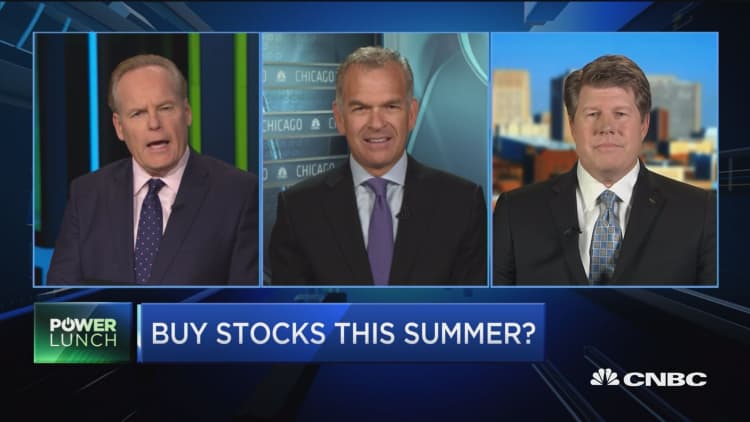
Now might not be a good time to enter the market with new capital, an investor told CNBC.
"We're going from a Goldilocks economy with low interest rates, low inflation expectations, stellar corporate earnings to an economy that's full of big bad wolves," K.C. Mathews, chief investment officer at UMB Bank, said Friday on "Power Lunch."
While the economy is currently booming — unemployment has reached historic lows of 3.8 percent, the Atlanta Fed is forecasting GDP growth of 4.6 percent in the second half of the year, and an earnings season was better than expected — some investors are worried this momentum might not last.
The culprit: looming trade war fears.
"I would be very cautious as far as identifying an entry point into risk-based assets," Mathews said.
Mathews said he is comfortable holding risk assets at present, but he cautions investors against "plowing into the market" with new capital until trade issues are resolved.
Market volatility has become the new norm since President Donald Trump announced steel and aluminum tariffs in March.
Thursday marked the Dow Jones Industrial Average's eight-day losing streak. However, by Friday intraday, the exchange had turned positive.
"The market has been really struggling, really rotating," CNBC contributor Ron Insana said Friday on "Power Lunch."
Small caps outperforming large caps and a concentration of gains from the FANG stocks in the Nasdaq have only added to the volatility. So have tensions from the upcoming midterm elections and Fed interest rate hikes.
But Mathews believes an agreement will soon be reached in terms of trade.
"Cooler heads will prevail on trade," he said. "They'll get to a leveling-off point, some type of agreement, and it won't stifle economic growth. Therefore the fundamentals of the economy remain intact, that you're going to have decent economic growth, decent corporate earnings, and I would remain long risk-based assets."


